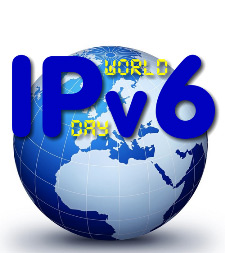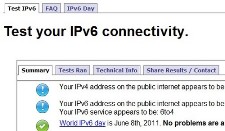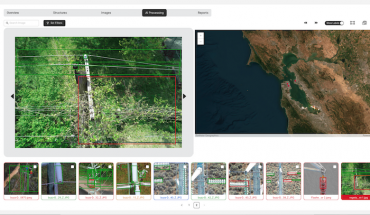You can’t get there from here – here being our current Internet, and there being the future.
We’ve talked about this possibility here before at WhatsYourTech.ca, but like, now it’s true!
There are no more new Web addresses, no matter how much Internet data does or doesn’t cost. As far as the current naming protocol, IPv4, is concerned – it’s game over.
The IPv4 address pool is effectively exhausted according to industry indicators .
IANA, the Internet Assigned Numbers Authority, has assigned its final regional registry or naming block; that means no more IPv4 addresses can be issued to the regional registries that provide addresses to the rest of us.
Some four billion IPv4 addresses have already been assigned. Four billion!
But, with the explosion in the number of people on the planet, not to mention the explosion of devices and services on the Internet, we need more.
IPv6, the next-generation Internet protocol, is said to be able to provide billions of times more space (is your head hurting, too?!?) and so can connect the billions of people and devices not yet connected to the Internet.

The world will test a new Web naming protocol, IPv6, this coming June.
So, some of the biggest Internet players out there not only want to get the IPv6 ball rolling, they want to get it tested, too.
Facebook, Google and Yahoo are joining with major content delivery networks Akamai and Limelight Networks – along with the Internet Society – for the first global-scale trial of the new Internet Protocol, IPv6.
On June 8, 2011, to be known as ‘World IPv6 Day’ participants around the world will enable IPv6 on their main services for 24 hours.
“By providing an opportunity for the Internet industry to collaborate to test IPv6 readiness we expect to lay the groundwork for large-scale IPv6 adoption and help make IPv6 ready for prime time,” explained Leslie Daigle, the Internet Society’s Chief Internet Technology officer.
IPv6, the successor to the protocol currently used on the Internet, was developed more than ten years ago, but it’s still not been deployment on a global scale (there are a few IPv6 enabled sites out there now, however).
Vint Cerf, Google’s Chief Internet Evangelist and co-inventor of the TCP/IP protocol stack, has said the Internet’s address shortage is something like the shortage of phone numbers – going from seven to ten digits, adding new three digit exchanges – but with a few more complications.
In a fascinating new interview, posted at the WSJ blog, Cerf says simply replacing the current v4 protocol with a new v6 will still cause problems:

Vint Cerf, the 'father of the Internet' warns about a lack of compatible names on the Web.
“The two aren’t compatible,” Cerf says in the interview. “Unless both of us are running IPv6, we can’t communicate. One of the problems is getting everybody an IPv6 address. The other problem is, especially in a residential setting, you may have a router, firewall or network address translation box that doesn’t know what to do with an IPv6 packet. So if you have Windows 7 or an operating system from Apple, even though those devices know how to do IPv6, the router or firewall may not know what to do. So we need to get all that tested and help users get upgraded so they can get access.”
So, the June 8 test day will be very important, but you don’t have to wait that long for testing your own connection. Chances are you will get a failing grade, like I did, so join the crowd!
“Hands down the most difficult part of introducing IPv6 into a broadband network is the home,” agrees Bruce Sinclair, CEO at gogo6 inc, the Canadian IPv6 technology, services and information company, based in Montreal.
“This is where a majority of the IPv6 costs lie, and it’s where service providers have the least control. [H]ome networking equipment is either not upgradable or owned by the end user making IPv6 synonymous with installing new equipment. The recent depletion of IPv4 addresses from the IANA pool increases the pressure on service providers to find a simple yet effective solution to offer v6 and v4 by way of v6.”
Of course, his company offers such a solution. Gogo6 has released a small v6 adaptor for the home that can be relatively easily installed, providing IPv6 within a minute.
Designed to work with, rather than replace home networking equipment, the gogo gogoCPE version 1.0 can be used to deploy IPv6 using IPv4 or to deploy IPv4 using IPv6 – both resulting in a dual-stack home network. The gogoCPE is plug ‘n’ play simple and designed to be installed by the end user without support.
The company also hosts the gogonet IPv6 community, and Freenet access service, so connections to IPv6 support and information is readily available, with lots of input and discussion from industry professionals, including content providers, Internet service companies, network technologists and consumer electronic manufacturers.
“I believe that social networking is a great tool to bring together local v6 communities as well as provide everyone with an international perspective,” Sinclair says. “It is also the most efficient way to share knowledge between people in different places. In the absence of past IPv6 experience or schooling, professionals need to interact with other professionals who have done it before to gain the knowledge they need to deploy IPv6.”

Various home IPv6 tests are online, such as this one linked by coolbuster.net.
There’re lots of online tests and resources about IPv6 all over the ‘Net, of course, including those offered by some of the test day partners.
Google already offers a separate IPv6-only version of search on ipv6.google.com, and during World IPv6 Day the company will enable IPv6 for its main websites, including www.google.com and https://www.youtube.com/.
Facebook views the rollout of IPv6 as a critically important step to keep the world connected. “As an industry, we’re working together to ensure future generations continue to have open and direct access to the Internet as we do today,” said Jonathan Heiliger, Facebook’s Vice President of Technical Operations. “The number of Web connected devices is exploding, and World IPv6 Day is a crucial step in ensuring they can all communicate.”
Submitted by Lee Rickwood
# # #
So, what’s your tech?
Are you a ‘friend’ of IPv6?
Have you been ‘tested’?
Is this an issue that the Federal Government should be tweeting about?



